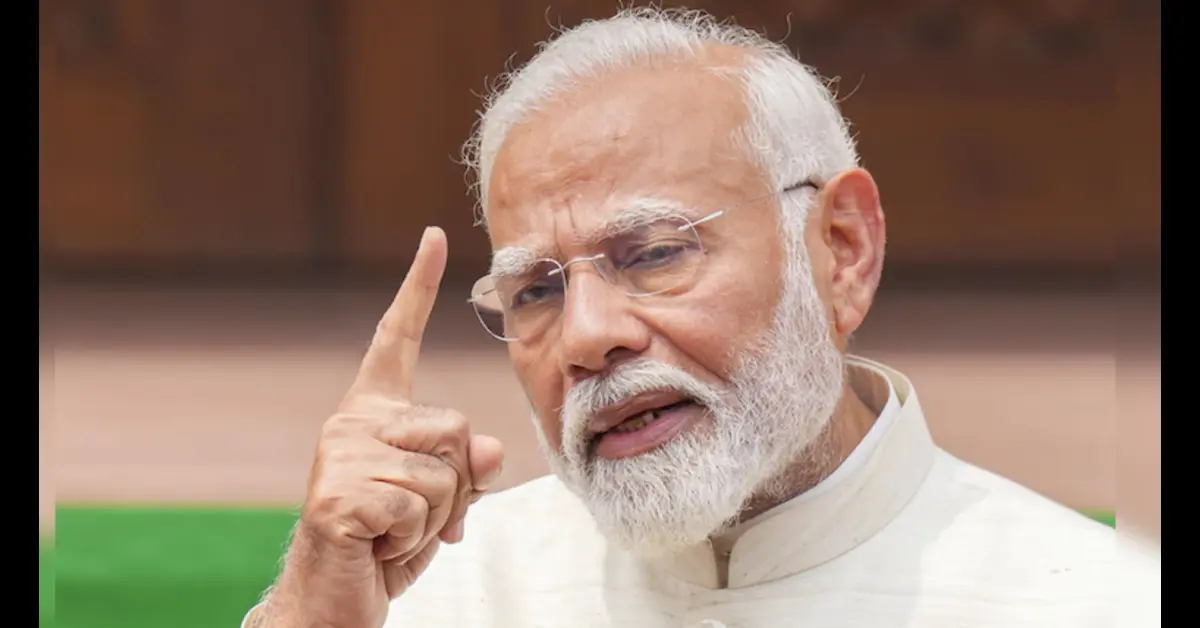Table of Contents
As the political landscape of India prepares for the commencement of the 18th Lok Sabha, Prime Minister Narendra Modi has sent a clear message to the opposition: the people of India demand action, not drama. This statement comes at a pivotal time as the country anticipates significant legislative activity and robust debates in the upcoming parliamentary session.
PM Modi’s Call for Constructive Opposition
Prime Minister Modi’s remarks reflect his expectation for a more constructive and solution-oriented approach from the opposition parties. In his address, he emphasized the need for collaborative efforts to address the pressing issues facing the nation. Modi underscored that the electorate is increasingly impatient with political theatrics and demands tangible results that impact their daily lives.
Key Issues on the Agenda for the 18th Lok Sabha
The 18th Lok Sabha session is poised to tackle a range of critical issues. Among the top priorities are economic reforms, social welfare programs, infrastructure development, and national security. The government aims to introduce several key bills and policies aimed at driving India’s growth and improving the quality of life for its citizens.
Economic Reforms and Development
Economic reform is expected to be a central theme of the 18th Lok Sabha. The government plans to propose measures to boost industrial growth, support small and medium enterprises (SMEs), and attract foreign investment. Additionally, there will be a focus on job creation and improving the ease of doing business in India. The opposition’s role will be crucial in debating these policies and ensuring that they serve the broader interests of the public.
Social Welfare and Public Health
Social welfare initiatives, particularly in the realms of healthcare, education, and poverty alleviation, will also be high on the agenda. The COVID-19 pandemic has highlighted the need for robust public health infrastructure and social safety nets. The government is likely to push for enhanced healthcare facilities, vaccination drives, and educational reforms to bridge the gap caused by the pandemic’s disruptions.
Infrastructure and Urban Development
Infrastructure development is another critical area where significant legislative efforts are expected. From expanding road networks and railways to enhancing urban infrastructure and smart city projects, the government’s Modi initiatives will aim to bolster India’s physical and digital connectivity. The opposition’s scrutiny and suggestions will be vital in refining these projects to ensure they meet the highest standards of efficiency and sustainability.
National Security and Defense
National security will remain a key focus, with discussions likely to cover defense modernization, border security, and counter-terrorism strategies. The government’s efforts to strengthen India’s defense capabilities and ensure internal security will be paramount. Constructive debate and bipartisan support will be essential to create a unified approach to these critical issues.
The Role of the Opposition in a Vibrant Democracy
Prime Minister Modi’s call for action over drama highlights the essential role of a vibrant opposition in a healthy democracy. Modi The opposition’s responsibility is to hold the government accountable, provide alternative solutions, and ensure that legislation reflects the diverse needs of the population. Engaging in meaningful debate and providing constructive criticism can help create more effective and inclusive policies.
Challenges Facing the Opposition
The opposition faces several challenges as it seeks to fulfill its role effectively. Fragmentation among opposition parties, differing ideologies, and leadership struggles can hinder their ability to present a unified front. Additionally, balancing the need to critique the government while also contributing positively to legislative processes requires strategic acumen and commitment.
Public Sentiment and Political Accountability
Public sentiment plays a crucial role in shaping political accountability. Citizens are increasingly informed and vocal about their expectations from both the government and the opposition. The demand for transparency, efficiency, and results is louder than ever, compelling political leaders to focus on substantive issues rather than engaging in partisan theatrics.
Future of Indian Democracy
The 18th Lok Sabha session represents a significant opportunity for Indian democracy to demonstrate its resilience and responsiveness to the needs of its people. With the government and opposition both under scrutiny, the quality of political discourse and the effectiveness of legislative action will be closely watched. The outcome of this session could set the tone for India’s political and economic trajectory in the years to come.
FAQs
What are the main issues expected to be discussed in the 18th Lok Sabha?
The 18th Lok Sabha will focus on economic reforms, social welfare, infrastructure development, and national security.
What did PM Modi emphasize in his address ahead of the 18th Lok Sabha?
PM Modi emphasized the need for action over drama from the opposition and called for collaborative efforts to address the nation’s issues.
Why is the role of the opposition important in a democracy?
The opposition is crucial for holding the government accountable, providing alternative solutions, and ensuring that legislation reflects diverse public needs.
What challenges does the opposition face in the 18th Lok Sabha?
The opposition faces challenges such as fragmentation, differing ideologies, and leadership struggles, which can hinder their effectiveness.
How does public sentiment influence political accountability?
Informed and vocal citizens demand transparency, efficiency, and results, compelling political leaders to focus on substantive issues.
What is the significance of the 18th Lok Sabha session for India’s future?
The session is a significant opportunity for Indian democracy to demonstrate its resilience and responsiveness, setting the tone for the country’s political and economic trajectory.
Kejriwal to Remain in Jail as HC Stays Bail in Excise Policy Case
Conclusion
Prime Minister Narendra Modi’s call for action over drama from the opposition sets the stage for a crucial 18th Lok Sabha session. As India faces significant challenges and opportunities, the collaborative efforts of both the government and the opposition will be essential in shaping the country’s future. By focusing on meaningful legislative action and constructive debate, Indian democracy can continue to thrive and address the needs of its citizens effectively.
